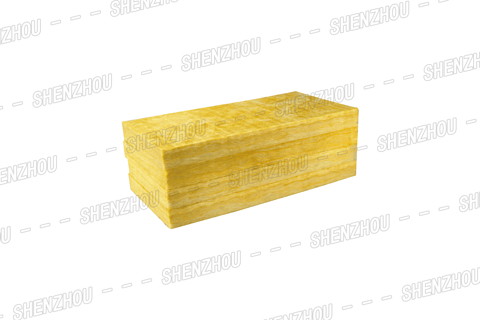
Is rock wool or glass wool suitable for internal insulation of houses?
6/18/20245 min read

Internal insulation of houses has always been a topic of great concern in the construction industry. With the development of technology, more and more insulation materials are being applied in practical engineering, among which rock wool and glass wool are two common insulation materials. So, is it suitable to use rock wool or glass wool for internal insulation in houses?
Categories
Popular
Applications of Glass Wool Board:
Interior Wall Compartments:
Enhances the functionality and aesthetics of interior spaces.
Ceiling Systems:
Provides effective insulation for ceilings, contributing to energy efficiency.
Insulation of Iron Sheet Air Ducts or Bellows:
Ideal for insulating ductwork, ensuring thermal efficiency.
Sound Absorption and Noise Reduction:
Reduces noise levels in machine rooms, creating a quieter working environment.
Exterior Wall Insulation:
Offers insulation for residential building exteriors, contributing to energy savings.
Glass Wool Insulation





Firstly, we need to understand the basic characteristics and advantages and disadvantages of rock wool and glass wool. Rock wool is an inorganic fiber insulation material made mainly from natural ores such as basalt, which is processed through high-temperature melting and fibrosis. It has good thermal insulation performance, fire resistance and chemical stability, while being non-toxic, odorless, environmentally friendly and safe. However, the sound absorption effect of rock wool is relatively weak, and dust may be generated during the construction process, which can have a certain impact on the health of workers.
Glass wool is an artificial inorganic fiber insulation material made mainly from natural ores such as quartz sand and limestone, which are processed through high-temperature melting and fibrosis. Glass wool has low thermal conductivity, excellent insulation and sound absorption properties, as well as corrosion resistance and chemical stability. With the improvement of technology, glass wool products now produce almost no dust, making them more environmentally friendly and healthy.
In the internal insulation of houses, rock wool and glass wool each have their own applicable scenarios. For occasions that require high fire resistance and do not require high sound absorption, such as public places or industrial plants, rock wool is a good choice. It can effectively prevent the spread of fires and ensure personnel safety. Meanwhile, the price of rock wool is relatively low, making it suitable for some engineering projects with limited budgets.
However, in residential and hotel settings where high requirements are placed on sound absorption and insulation performance, glass wool has more advantages. The sound absorption effect of glass wool is better than that of rock wool, which can effectively reduce indoor noise and improve living comfort. At the same time, the insulation performance of glass wool is also excellent, which can maintain stable indoor temperature and reduce energy waste.
In addition, we also need to consider construction convenience and cost factors. Rock wool and glass wool have their own characteristics in construction. The texture of rock wool is relatively hard, and attention should be paid to cutting and splicing during construction, but the overall construction difficulty is not high. Glass wool is softer and easier to operate, and can be cut into different shapes and sizes according to needs, making construction more convenient. In terms of cost, rock wool is usually slightly cheaper than glass wool, but considering the advantages of glass wool in insulation and sound absorption, its cost-effectiveness is also very high.
Based on the above analysis, we can conclude that both rock wool and glass wool have their respective application ranges and advantages in internal insulation of houses. When choosing, it is necessary to comprehensively consider the specific needs and characteristics of the project. For occasions with high requirements for fire resistance and low requirements for sound absorption, rock wool can be chosen; For residential, hotel and other occasions that require good insulation and sound absorption effects, glass wool is more suitable.
Of course, in practical engineering, we also need to choose appropriate insulation materials and construction plans based on specific circumstances. When selecting insulation materials, attention should be paid to their performance parameters, environmental standards, and construction requirements; During the construction process, it is necessary to ensure construction quality and follow relevant safety regulations and operating procedures. Only in this way can we ensure the effectiveness and quality of the internal insulation of the house, and provide residents with a safe, comfortable, and energy-saving living environment.

Why Choose SHENZHOU Glass Wool Board?
SHENZHOU® Glass Wool Board not only meets the essential requirements of thermal insulation but also excels in sound absorption and noise reduction. Its adaptability to various settings, coupled with the convenience of construction and installation, positions it as a leading choice for architects, builders, and contractors.
In conclusion, the broad application prospects of SHENZHOU® Glass Wool Board make it a comprehensive solution for enhancing comfort, energy efficiency, and acoustic performance across diverse projects. Choose SHENZHOU® for insulation solutions that go beyond expectations.










About Us
Click the button below to get more information about us
Newsletter
Click to subscribe for more information
Follow Us
Contact Us
Address
Dacheng town, Langfang City, Hebei province, China
Phone
+86 185 03165 626


